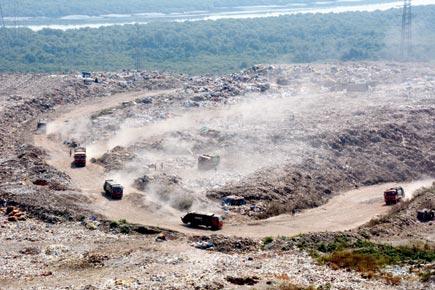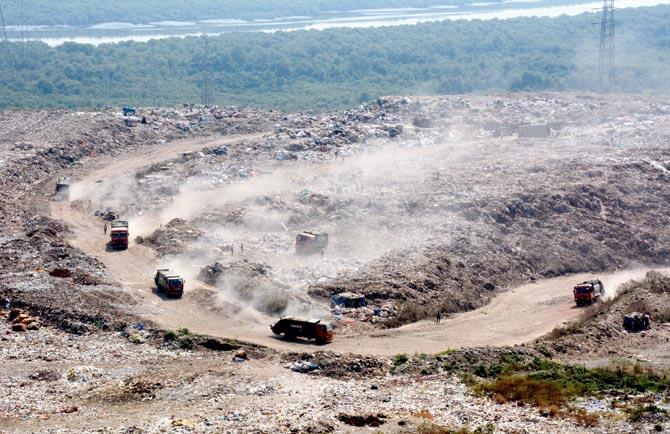Civic body will also start work to set-up another bioreactor plant to scientifically dispose of waste at dumping site


In the next five years, the BMC is also planning to increase the waste disposal capacity at its dumping sites in Mulund and Kanjurmarg
ADVERTISEMENT
Reeling under a space crunch to dump the city's garbage, Brihanmumbai Municipal Corporation (BMC) has increased the scientific waste disposal capacity of the Kanjurmarg dumping ground.
By April 15, the civic body will dispose an additional 1,000 tonnes per day at the bioreactor plant set up for composting. Currently, BMC treats 3,500 tonnes of waste at the Kanjurmarg dumpsite. The increased capacity of scientific disposal of garbage will help the city reduce its long pending problem of waste management.
While Mumbai generates around 9,000 tonnes of waste per day, all three dumping grounds — Deonar, Mulund and Kanjurmarg — have reached their maximum capacity, civic officials said. The poor management of garbage and delay in setting up of a scientific process to dispose of waste has led to frequent fires in Deonar and Mulund dumping grounds, causing serious health problems for residents.
Meanwhile, the BMC is also planning to get an additional 52.5 hectares of land at Kanjurmarg to set up another bioreactor plant. "Since the area falls under the Costal Regulation Zone, we are waiting to get permission from the environment ministry," a senior civic official said.
Deputy chief engineer Minesh Pimple of BMC's solid waste management (SWM) department said, "After increasing the disposal capacity at the Kanjurmarg site, we will start work on scientific disposal of waste in Mulund. The key to success of garbage management depends on waste segregation."
The civic body is also in the process of acquiring two plots of land at Taloja and Airoli for setting up garbage processing plants.
 Subscribe today by clicking the link and stay updated with the latest news!" Click here!
Subscribe today by clicking the link and stay updated with the latest news!" Click here!






